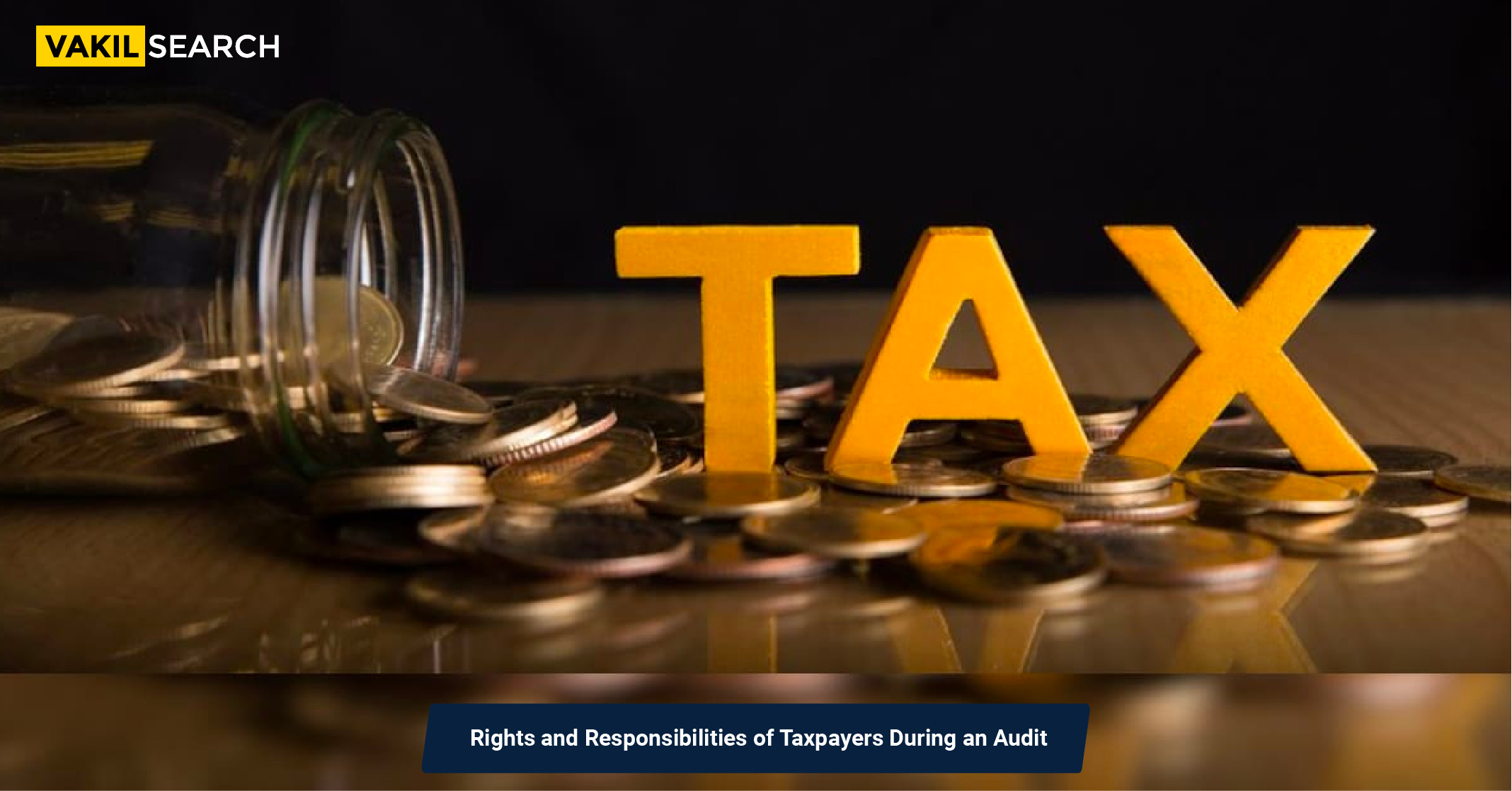Know what taxpayers need to know about their rights and obligations when facing a tax audit, ensuring a smoother and legally compliant experience. Start right now!
Taxes form the financial backbone of any economy, holding a vital role in funding a country’s development. In India, the Income Tax Act was initially created in 1922, then comprehensively revised in 1961 with subsequent amendments to adapt to evolving needs. The Act’s core purpose is efficient tax collection, with the revenue generated contributing to social welfare and nation-building initiatives. Let’s explore the rights and responsibilities of taxpayers during an audit in this article.
Rights and Responsibilities of the Taxpayers
Taxpayers have the right to a fair and impartial tax audit process, and it is their responsibility to maintain accurate financial records. They also have the right to seek professional assistance in preparing for and responding to tax audits, and it is their responsibility to comply with tax laws and regulations. Here are the entitlements of taxpayers and the responsibilities of the income tax department:
- Assisting taxpayers in a just and reasonable manner
- Presuming every taxpayer’s honesty unless proven otherwise by the tax department
- Establishing a fair and unbiased procedure with an effective review mechanism
- Furnishing precise and comprehensive information regarding tax compliance
- Resolving tax proceedings promptly
- Ensuring the accurate collection of tax liabilities
- Holding tax authorities accountable for their actions
- Respecting taxpayer privacy and conducting examinations following due legal process
- Safeguarding taxpayer information confidentiality, disclosing it only when mandated by the law
- Ensuring accountability for the actions of tax officers
- Allowing taxpayers the freedom to choose their representatives as per tax law
- Establishing a complaint mechanism and ensuring its swift resolution
- Resolving disputes impartially and fairly
- Taking into account the cost of compliance, tax administration, and collection.
Obligations of the Taxpayers
- Taxpayers are anticipated to exhibit honesty, providing complete and timely information while meeting their obligations
- Taxpayers should adhere to tax-related responsibilities and can approach the department for assistance
- Maintain precise records as mandated by law
- Taxpayers should stay informed about the actions of their representatives
- Timely compliance with tax law submissions is expected from taxpayers
- Payment of due amounts should occur promptly in accordance with the law.
Recent Advancements in E-assessment and E-appeal
In 2019, the income tax department launched a pilot e-assessment scheme, with plans for a comprehensive e-assessment system. This system eliminates the need for taxpayers to physically visit tax offices to respond to notices or inquiries, fostering transparency and accountability. As of 13 August 2020, e-assessment became mandatory for all income tax proceedings.
Additionally, the Union Budget 2020 introduced the concept of e-appeals, or faceless appeals. The department is set to implement an e-appeal scheme starting 25 September 2020. These initiatives, including e-filing of tax returns, the use of DIN for department communication, and e-appeals, aim to streamline interactions between taxpayers and tax authorities, making them entirely faceless.
Frequently Asked Questions
1. Can I refuse to cooperate during a tax audit to protect my privacy?
While you have rights, cooperation is vital. Refusal may lead to legal consequences. The tax audit process aims to ensure compliance, not violate privacy.
2. What should I do if I believe my rights as a taxpayer are being violated during an audit?
Contact a tax professional from Vakilsearch immediately to address any concerns. You have the right to a fair and just audit process.
3. Can I record conversations or interactions with tax authorities during an audit?
Check local laws; recording may be allowed. It's advisable to inform them beforehand for transparency.
4. Is it true that I can have a representative present during an audit?
Yes, you have the right to appoint a representative to assist and protect your interests during the audit.
5. Can I dispute the audit findings if I believe they are incorrect?
Absolutely, you can appeal or dispute the findings if you can provide evidence supporting your position. The audit process allows for a fair resolution of discrepancies.
Conclusion – Rights and Responsibilities of Taxpayers During an Audit
While the introduction of the Taxpayers’ Charter is commendable, there is still much work to be done. It should be legally enforced, giving taxpayers the option to express concerns if their rights are violated. Over a year has passed since the Charter’s launch, yet the tax department has not issued any guidelines. Complying with the Charter’s provisions is essential for fostering a harmonious relationship between the tax department and taxpayers. Get in touch with Vakilsearch for more information.










